Pillsbury SALT partner Breann Robowski will present during ABA/IPT’s 2021 Advanced Property Tax Seminar on March 18.
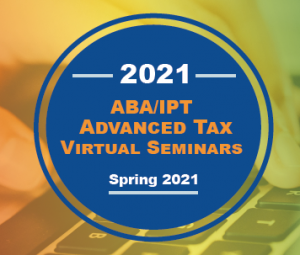
Pillsbury SALT partner Breann Robowski will present during ABA/IPT’s 2021 Advanced Property Tax Seminar on March 18.

Pillsbury SALT partners Craig Becker and Breann Robowski will present during Pillsbury’s 2021 California CLE Marathons. This event features a wide variety of live webinars on timely topics. Craig and Breann will present “California Property, Transfer and Local Tax Updates” on Monday, January 25. Continue Reading ›
Continue Reading ›
Pillsbury SALT partner Breann Robowski will present during The National Multistate Tax Symposium. The theme for the 2021 symposium is “Leading Through Uncertainty – Navigating Multistate Tax With Confidence,” which will focus on exploring significant issues facing today’s multistate tax practitioners.
 Pillsbury partners Breann Robowski and Craig Becker will present during CalTax’s Splitting the Property Tax Roll webinar series in October.
Pillsbury partners Breann Robowski and Craig Becker will present during CalTax’s Splitting the Property Tax Roll webinar series in October.
Splitting the Property Tax Roll, a webinar series on the Technical Provisions of Proposition 15, will feature a new episode every Tuesday in October.
Breann will present during Episode 1, “California’s Property Tax System” on October 6. The speakers will discuss what California’s property tax system was like prior to the passage of Proposition 13 in 1978, provide an overview of the current property tax structure and how the measure has evolved over time, and discuss the provisions of Proposition 15.
Craig will present during Episode 2, “Ready, Set, Split Roll: The Impact of Proposition 15″ on October 13. This webinar will cover the economic impact of Proposition 15, including how the measure would impact consumers and private-sector employment. Speakers will cover how to interpret Proposition 15, drafting flaws, and how the measure would have specific impact on certain industries, including agricultural properties and vineyards, energy, and telecommunications.
For more information, please visit the event page.
CalTax members may find a recording of Breann’s presentation here and Craig’s presentation here.
In 731 Market Street Owner LLC v. City and County of San Francisco 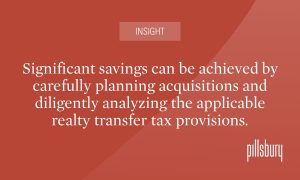 (June 18, 2020), California appellate court affirms that local realty transfer tax does not apply when leasehold has a remaining term of 35 years or more. SeeSALT authors Craig Becker, Breann Robowski, Richard Nielsen, and Robert Merten III explain.
(June 18, 2020), California appellate court affirms that local realty transfer tax does not apply when leasehold has a remaining term of 35 years or more. SeeSALT authors Craig Becker, Breann Robowski, Richard Nielsen, and Robert Merten III explain.
Read the full article here.
This November, California voters will decide whether commercial 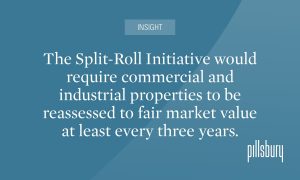 and industrial properties will lose their Proposition 13 protection against property tax reassessment. Authors Craig Becker, Richard Nielsen, and Breann Robowski explain.
and industrial properties will lose their Proposition 13 protection against property tax reassessment. Authors Craig Becker, Richard Nielsen, and Breann Robowski explain.
Read the full article here.
The U.S. Court of Appeals for the Fourth Circuit held that a South Carolina law limiting increases in appraised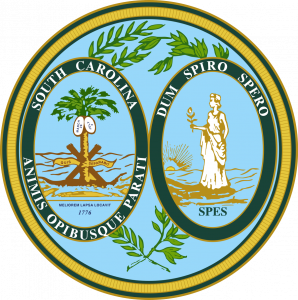 values of most commercial and industrial real properties to 15% within a five-year period violated the 4R Act because it discriminated against railroad properties. CSX Transp., Inc. v. S.C. Dep’t of Revenue, No. 19-1154 (4th Cir. May 20, 2020). Continue Reading ›
values of most commercial and industrial real properties to 15% within a five-year period violated the 4R Act because it discriminated against railroad properties. CSX Transp., Inc. v. S.C. Dep’t of Revenue, No. 19-1154 (4th Cir. May 20, 2020). Continue Reading ›
 In this burgeoning era of creative and aggressive tax collecting efforts by localities, the New Hampshire Supreme Court has unanimously struck down a state statute from permitting localities to profit from sales of properties acquired by tax deed after the passage of three years. The Court held the state statute unconstitutional under the state constitution’s taking clause, which prohibits localities from taking property without just compensation.
In this burgeoning era of creative and aggressive tax collecting efforts by localities, the New Hampshire Supreme Court has unanimously struck down a state statute from permitting localities to profit from sales of properties acquired by tax deed after the passage of three years. The Court held the state statute unconstitutional under the state constitution’s taking clause, which prohibits localities from taking property without just compensation.
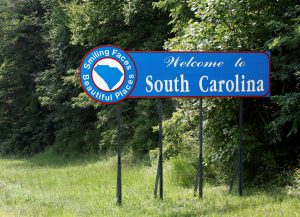 On March 6, 2020, the South Carolina Administrative Law Court entered an order in Colonial Pipeline Co. v. South Carolina Department of Revenue, No. 18-ALJ-17-0443-CC, in which it held that a pipeline company’s assets may qualify for a property tax exemption for pollution control equipment of industrial plants under S.C. Code Ann. § 12-37-220(8). In so holding, the ALC rejected the Department of Revenue’s contention that the exemption is available only to manufacturers (i.e., companies engaged in some form of production or that have some form of output). Even if the exemption required some form of production or output, the ALC said, the pipeline company’s process of separating “transmix”—the mixture that results when different petroleum products travel through a pipeline simultaneously—into salable products, adding drag-reducing agents to the product as it is transported, and removing water that accumulates in the transported product is a form of production, notwithstanding that it may be incidental to the company’s transportation business. The ALC concluded that some of the company’s assets, such as tank farms and other facilities and equipment, may fall within the meaning of “industrial plant,” while unattended pipeline that merely transports the product may not. The court ultimately denied the parties’ cross-motions for summary judgment on the grounds that further inquiry into how much of the company’s property can be classified as an “industrial plant” was necessary.
On March 6, 2020, the South Carolina Administrative Law Court entered an order in Colonial Pipeline Co. v. South Carolina Department of Revenue, No. 18-ALJ-17-0443-CC, in which it held that a pipeline company’s assets may qualify for a property tax exemption for pollution control equipment of industrial plants under S.C. Code Ann. § 12-37-220(8). In so holding, the ALC rejected the Department of Revenue’s contention that the exemption is available only to manufacturers (i.e., companies engaged in some form of production or that have some form of output). Even if the exemption required some form of production or output, the ALC said, the pipeline company’s process of separating “transmix”—the mixture that results when different petroleum products travel through a pipeline simultaneously—into salable products, adding drag-reducing agents to the product as it is transported, and removing water that accumulates in the transported product is a form of production, notwithstanding that it may be incidental to the company’s transportation business. The ALC concluded that some of the company’s assets, such as tank farms and other facilities and equipment, may fall within the meaning of “industrial plant,” while unattended pipeline that merely transports the product may not. The court ultimately denied the parties’ cross-motions for summary judgment on the grounds that further inquiry into how much of the company’s property can be classified as an “industrial plant” was necessary.
The ALC’s determination that the pollution control equipment exemption is not strictly limited to manufacturers is important in that it may have implications for other industries in which companies do not engage in traditional forms of manufacturing, or engage in manufacturing as an incident to their primary businesses, but are nonetheless required to use pollution control equipment. Keep an eye on this case.
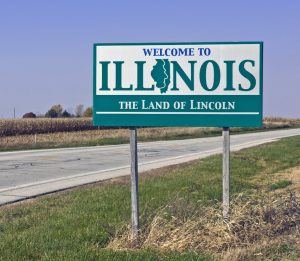 On January 29, 2020, the U.S. Court of Appeals for the Seventh Circuit held the Tax Injunction Act did not bar a federal lawsuit challenging property tax assessments on equal protection grounds because the taxpayers that brought the suit did not have a plain, speedy and efficient remedy in the Illinois state courts.
On January 29, 2020, the U.S. Court of Appeals for the Seventh Circuit held the Tax Injunction Act did not bar a federal lawsuit challenging property tax assessments on equal protection grounds because the taxpayers that brought the suit did not have a plain, speedy and efficient remedy in the Illinois state courts.